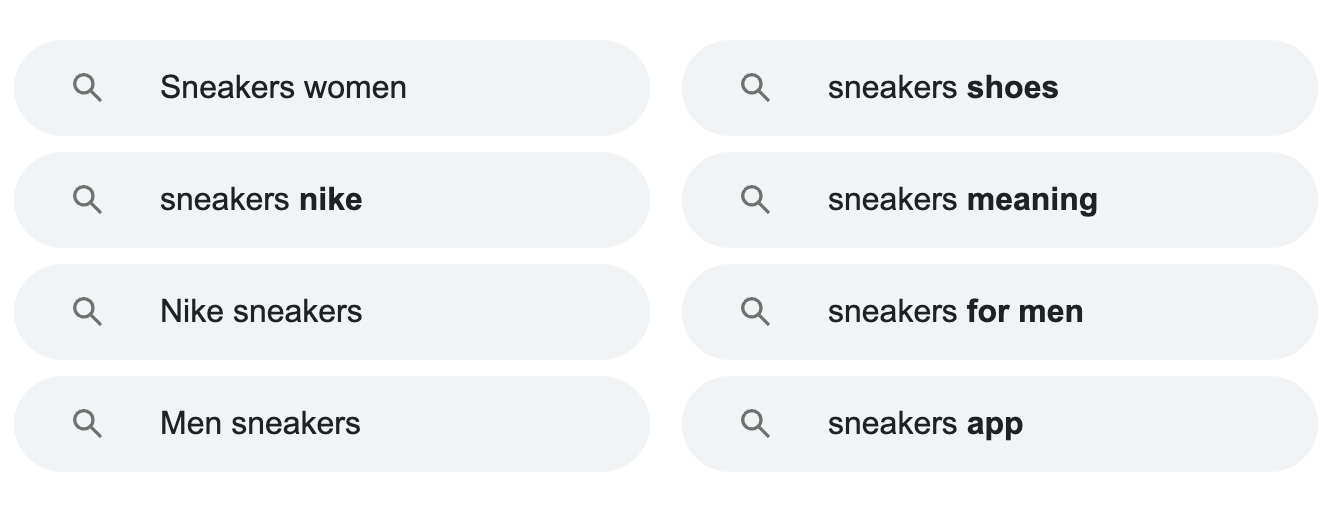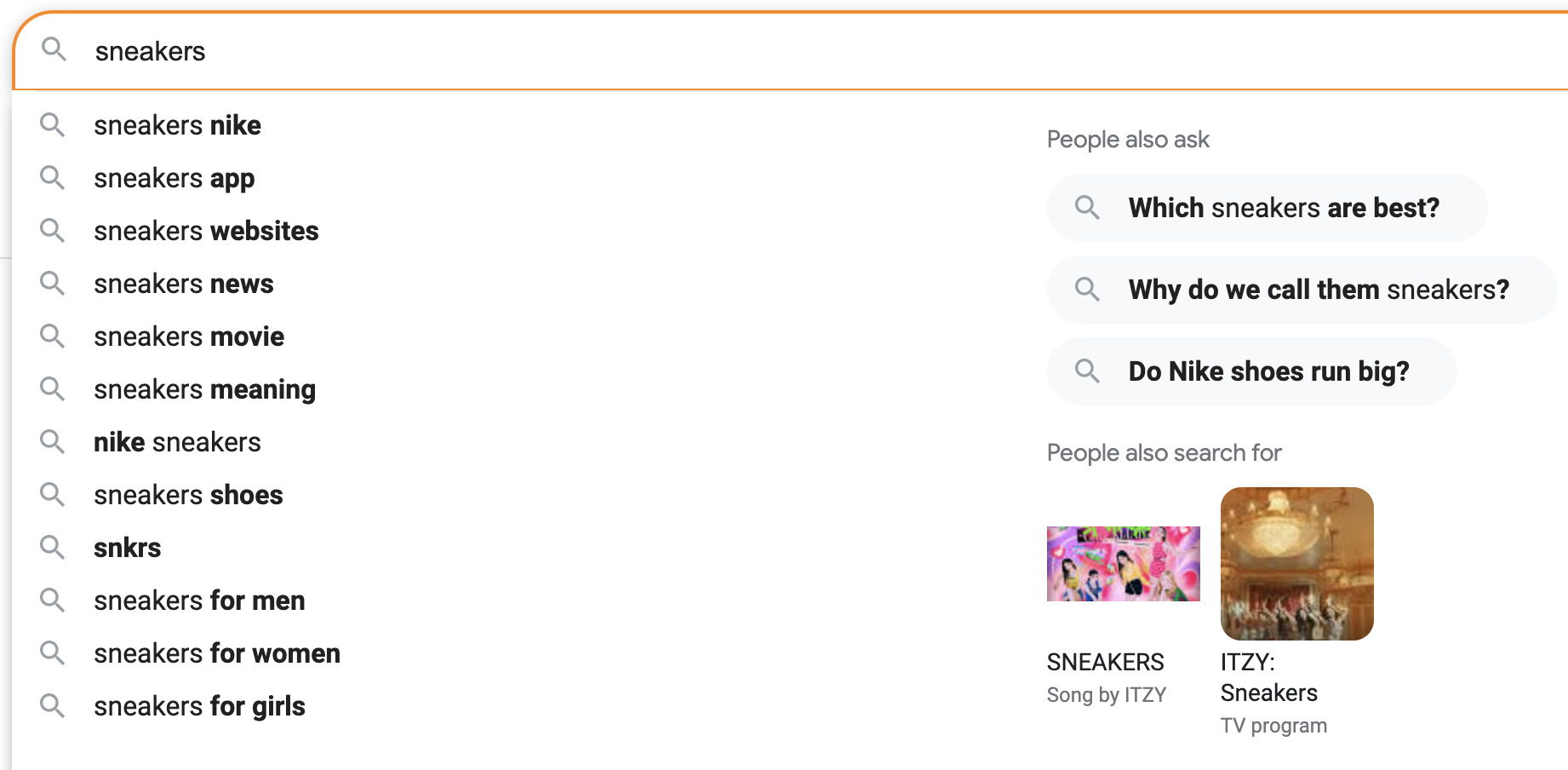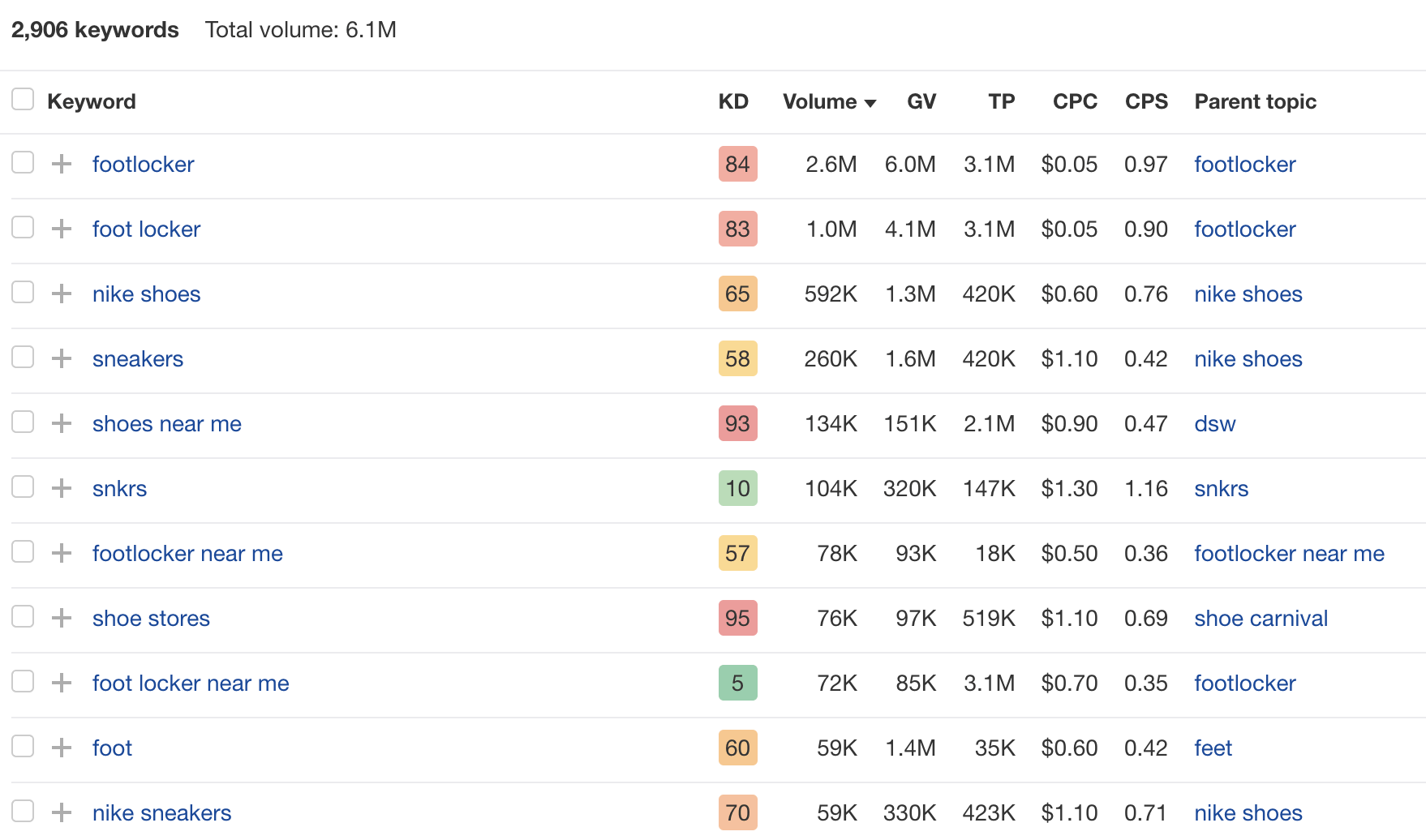LSI Keywords
What are LSI Keywords?
In terms of SEO, LSI (short for Latent Semantic Indexing) keywords are words closely tied to the main keyword the page is targeting and are, in some way, semantically related to it.
Latent Semantic Indexing - also called Latent Semantic Analysis - is an NLP (Natural Language Processing) technology developed and patented in 1989 to identify relationships between words based on context.
We won’t go into the intricacies and the complex mathematical concepts behind this technology, but here’s a simplified explanation of what it is intended to do:
LSI recognizes hidden or “latent” associations between words and concepts in order to improve the understanding of the information provided in any given piece of content. In essence, it helps computers understand and interpret language the same way humans would.
Let’s say that the web page’s main keyword is “sneakers.” In that case, the page would probably also include terms like “Nike shoes,” “soles,” and “Jordans,” for example, as LSI keywords.
These terms are connected based on context; they do not necessarily have the same meaning - although it is possible for them to be synonymous with each other. That’s something to take note of when talking about LSI keywords:
These words are not synonyms. They are contextually related to the main keyword and the topic of the page in general.
It seems logical that Google would use LSI technology to understand semantically related words and figure out the topic of the content. And yet, Google’s representatives have repeatedly stated that’s not the case - and that LSI keywords are not a ranking factor.
Google likely employs a far more advanced and refined method when determining a web page’s relevance - which involves more than simply checking if a page contains a specific set of related terms and phrases.
Even if Google doesn’t technically use LSI technology, many SEO specialists still refer to adding related words as “adding LSI keywords.” And it is likely that Google - and other search engines - pay close attention to the non-keyword terms in your content and use them as a ranking factor.
In that sense, including “LSI keywords” in your content could help the page rank better.
Why are LSI keywords important?
LSI keywords are important because they help the search engine determine and understand the overall topic of a website or specific page.
Search engine crawlers used to determine the topic of a page based on the keywords found on it. If the crawler saw the word “sneakers” constantly repeated on a page, it would determine the page’s topic is about sneakers based on term-matching.
That is why keyword density was seen as important for SEO in the early days.
Fast forward to today, and search engines are much smarter.
Instead of looking solely at the main keywords, modern-day search engines scan the content for contextually related words, as well, to determine the page’s topic and relevance to the query.
Let’s return to the previously used example - a page about sneakers.
Google and other search engines won’t just look for the keyword “sneakers” in the content. They will also look for related terms, such as “Nike’s shoes,” “Jordans,” and “Addidas,” for example.
That said, the importance of LSI keywords extends beyond ensuring that your page ranks better in SERPs. They can be beneficial in other ways, including:
- Making your content more credible - Including contextually related words in your post makes it more relevant and natural-sounding - increasing the chances of people reading and sharing it. That, in turn, can boost its credibility.
- Improving on-site browsing time - Semantically relevant words improve the quality of content, which might encourage website visitors to check out the rest of the website, too.
- Decreasing bounce rates - Content that includes “LSI keywords” is highly targeted and more likely to be seen by the right audience, which can help reduce bounce rates.
How to find LSI keywords?
Finding the right LSI keywords for your content is usually relatively simple, and, more often than not, some semantically-related terms will find their way into your content naturally.
However, when covering a complex topic, you can easily overlook some words and phrases that Google would deem relevant and important.
Here’s where you can find relevant, semantically-related terms to include in your content:
1. Related searches on Google
If you run a Google search for your primary keyword and scroll to the bottom of the SERPs, you will see the “Related Searches” section.
Here’s what this section might look like when you type in the word “sneakers”:

You can use the bolded words in the Related Searches section as inspiration for the additional topics you should mention in your content. Of course, you should use common sense and add only terms that match your page’s main topic.
2. Google autocomplete
Another simple way to find “LSI keywords” is to look at Google’s autocomplete results.
Enter your main keyword, but rather than hitting the “Search” button, let Google’s Autocomplete feature give you some suggestions.

3. LSI keyword tools
Besides using Google’s features, you can also try LSI keyword generator tools.
Do keep in mind that these tools don’t have anything to do with actual LSI technology. However, they can be used as a source of inspiration and help you quickly come up with related terms you could sprinkle throughout your content.
4. Keywords Explorer
Ahrefs’ Keywords Explorer has several modes for keyword generation. The “Also rank for” report can be useful in uncovering related terms and phrases you can incorporate into your content.
